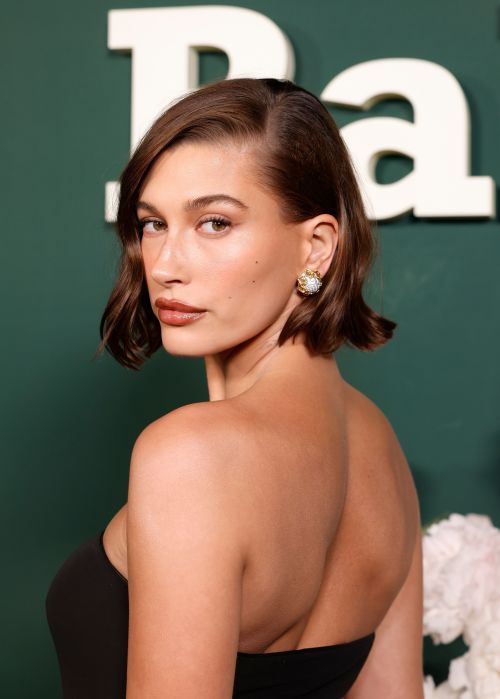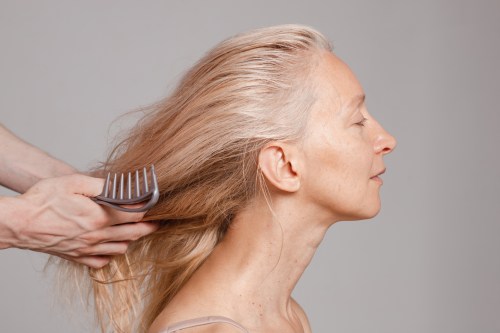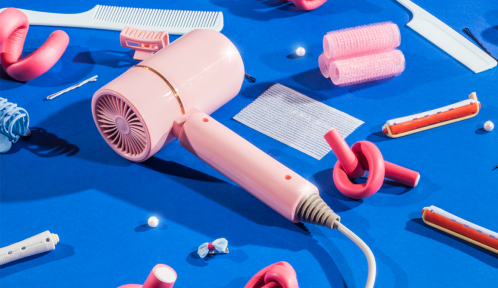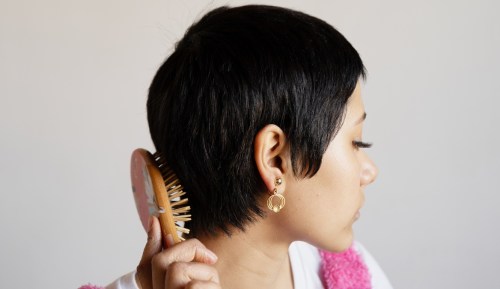The very mention of hair loss causes a visible ripple effect in a conversation among my female friends, lowering a loud table of brunching besties to an awestruck crowd when one of us admits that she’s experiencing some unwanted shedding. While everyone looks around to each other to provide a cue on what to say next, another friend pipes up: “Not to worry! It’s common to lose more hair in fall than other times of year.”
Wait. What? Is that true?
According to Francesca Fusco, a New York City-based, board-certified dermatologist and renowned expert in scalp health and hair loss: Yep! It could be true. “One of the reasons that’s been proposed for this seasonal hair loss is that it’s evolutionary,” she explains. “During the summer months, we tend to hold onto more hair to protect our scalp from UV light. So, it only naturally follows that if one season you’re holding onto the hair, the following season is when you shed.” According to Dr. Fusco, that shedding begins at the very end of August and continues throughout the fall.
“During the summer months, we tend to hold onto more hair to protect our scalp from UV light.”
Now, before you panic, know that this cycle of hair loss and hair growth is totally normal. According to Dendy Engelman, a New York City-based, board-certified dermatologist, it’s completely normal to lose up to 100 hairs a day from the average 100,000 follicles on your head.
“Everyone goes through hair shedding cycles, and there are going to be time when there are more hairs in the growth phase and other times when more are in the resting and falling out phase,” Engelman tells me. “It’s not a perfect clock where each hair is set to cycle at the same time.”
All that aside, what if this isn’t just a seasonal thing, and how do you know when it’s more serious? “If you see one or more round, smooth, bald spots, immediately contact your dermatologist,” warns Dr. Fusco, because it could be alopecia areata. You should also give them a call if you experience inflammation, pain, redness, bumps, or blisters in the area where you’re shedding or if the shedding lasts longer than a month.
If this doesn’t sound like you, however, and instead, you’ve simply noticed more hairs in the drain than usual, the dermatologists have some broad suggestions that might just help deal with the shedding.
Keep scrolling to for their top tips on how to deal with fall fallout.
Mind your scalp health
Both doctors recommend treating your scalp with kindness. Dr. Engelman suggests organic coconut oil warmed in the hands and applied to the scalp and hair for a gentle massage to help stimulate circulation and blood flow. You also want to remove buildup and styling products from the area, and can do that with something such as a clarifying rinse with apple cider vinegar, but Dr. Engelman says to go easy. “There are all kinds of things out there now like scalp masks and exfoliants. I don’t want people to be too aggressive with the scalp. The body is pretty awesome at taking care of itself,” she says.
Treat your hair with kindness
Dr. Fusco recommends reviewing your current hairstyling regimen for damage-causing techniques like daily heat styling, including excessive blowouts, flat ironing, and curling wands. If this sounds familiar, consider giving your hair a break more often to help with overall scalp and hair health. Also, moisture is crucial for hair health, so Dr. Engelman recommends a humidifier during the winter months to help hydrate parched strands.
Grab a supplement
Our dermatologists love the botanical hair supplement Nutrafol, a botanical, drug-free option that their patients swear by for hair growth. It has proven in clinical trials to help counteract the stress response that causes excess hair loss.
Eat right
“It’s basically what your mother taught you: eat well, balanced, and healthy,” recommends Dr. Fusco, who stresses getting enough protein in your diet, which she emphasizes is crucial for hair growth. She also warns against extreme diets like fasting for multiple days when trying to entice hair regrowth.
Be kind to your body
Stress is not your friend. Both doctors warn that major stressors and overall health changes can exacerbate hair loss: radical changes in diet, changing oral contraceptives, antibiotics, illness, extreme stress at work or at home, and having a baby can all cause more hair loss than you’re used to. Both doctors recommend being mindful of major life changes to minimize the impact to your body as much as possible, and come spring hope that like everything else, your strands will bloom again.
The season affect more than just your hair! Here is a guide to how to overhaul your skin-care regimen for fall and here’s the smoothie recipe Elle MacPherson swears by for fall.
Sign Up for Our Daily Newsletter
Get all the latest in wellness, trends, food, fitness, beauty, and more delivered right to your inbox.
Got it, you've been added to our email list.











